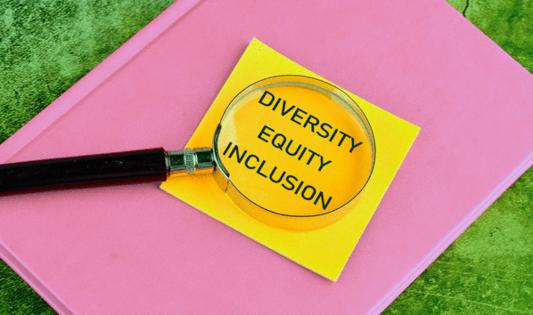Commentary: DEI is worth saving if programs focus on expanding advantages
Published in Op Eds
DEI backlash is prolific. Many companies inspired to begin diversity, equity and inclusion work after the racial unrest of 2020 are pausing those same efforts in response to pushback from customers and employees.
The reasons for the pushback vary, but for many, DEI represents a threat to status and access to resources. These fears are not entirely unfounded. Some DEI strategies aim to “level the playing field” by eliminating what some see as unfair advantages.
For example, research shows that white men are more likely to benefit from employer referral programs during hiring, which contributes to disparities in hiring and compensation. Some DEI strategies would end these referral programs to address these disparities so no one is advantaged. Eliminating the program strips people of something that helped them succeed. These types of shifts might fuel fears about DEI programs.
But as my grandmother said, “You catch more flies with honey than vinegar.” What if DEI programs focused on expanding advantages for everyone instead of eliminating them and taking away resources from some?
Advantages for people in the dominant groups in workplaces are well documented and happen across the employee life cycle.
Research shows that hiring managers value white people’s referrals of other white people more than they value people of color’s referrals of other people of color.
White people are more likely to have access to mentorship than people of color, which helps them navigate the ins and outs of their workplaces. White people and men have more access to informal networks that help them understand unwritten rules that affect how someone is perceived and whether they advance at work.
Resources are more likely to flow to people perceived as in the ingroup or dominant group. White men get better work assignments that make them more promotable than people of color and women.
Men are more likely to be seen as brilliant than women. The contributions of men and white women are more likely to be heard and acknowledged than those of women of color. Men and white people get the benefit of the doubt when someone evaluates their performance compared to women and people of color, respectively.
When it comes to developing and growing at work, white men are advantaged because they get more candid, developmental feedback compared to women and people of color. When they make mistakes, white men are advantaged because they are more likely to be forgiven for errors than women and people of color.
White men are more likely to think other white men have more potential than women or people of color, which leads to advantages related to promotions.
These advantages are examples of care, access, ease and assistance that help people succeed in the workplace. Ideally, everyone would have what they need to be successful and thrive at work. Instead of removing these advantages, we could reframe how we see them — these advantages are the resources contributing to success. Here are some strategies for expanding access to these resources to all team members:
Hiring
— Hold open group information sessions with candidates to share insider tips about how things work inside your company and how to be successful in your hiring process.
— Expand referral programs to networks and organizations that can help you diversify your team.
Onboarding
— Design an onboarding plan that helps new hires learn about their role, team, organization and manager. Be sure to include activities for knowledge transfer and relationship building.
— Assign an “onboarding buddy” who can help the new hire understand your organization's unwritten rules. Be sure to provide the buddy with training and resources so they are well set up to help the new hire navigate the organization.
Mentorship
— Create a mentorship program that connects all staff with senior leaders trained to help staff navigate the organization and act as champions for staff in the rooms that staff are not in.
Expand the ingroup
— Create rituals across your team that foster regular authentic relationship building, which research shows expands who is included in the ingroup. This type of relationship building is not about surface-level activities like icebreakers, happy hours or trust falls. Instead, it focuses on building a sense of shared vulnerability, safety and connection across the team.
Managing performance
— Gather multiple, diverse perspectives about performance, which research shows leads to a more accurate performance assessment than single evaluators.
— Foster a growth mindset about staff development, and use manager rituals to help managers identify and celebrate potential in all employees.
— When there are performance issues, treat staff members with care and approach remediation with a restorative lens aimed at helping the staff member return to your agreements about expectations.
Career advancement
— Create visibility for upcoming roles for everyone on the team.
— Use a transparent process for assessing criteria for advancement.
— Share power by using diverse groups to make decisions about promotions, which has been shown to mitigate bias and support more equitable decision-making.
Some may doubt companies’ abilities to expand advantages equitably, and based on the track record of U.S. companies providing equitable treatment of employees, that concern is valid. We can’t let unjust history keep us from trying new strategies to create a more just future.
Diversity improves company performance, and DEI strategies are necessary to benefit from that diversity. By focusing on expanding who has access to care and working to foster relationships that expand who is in the ingroup, more people will be able to thrive at work. Expansion instead of contraction — with an eye for supporting everyone — will help organizations get their DEI efforts back on track.
____
Myatt is the co-founder of The Equity Practice and a public voices fellow alumna through The OpEd Project.
_____
©2024 The Fulcrum. Visit at thefulcrum.us. Distributed by Tribune Content Agency, LLC.




























































Comments